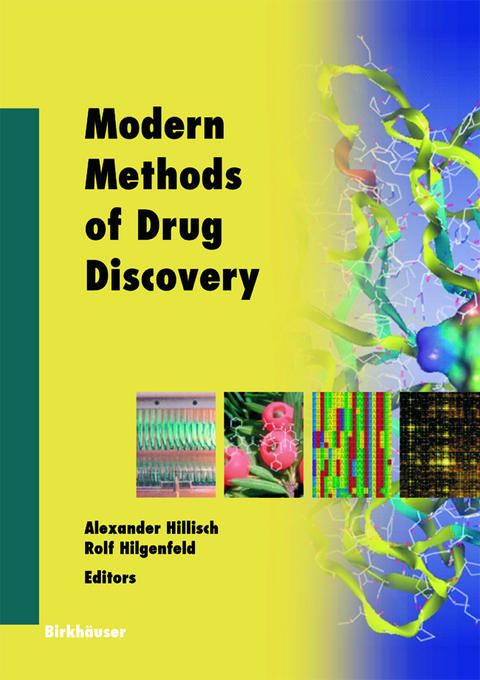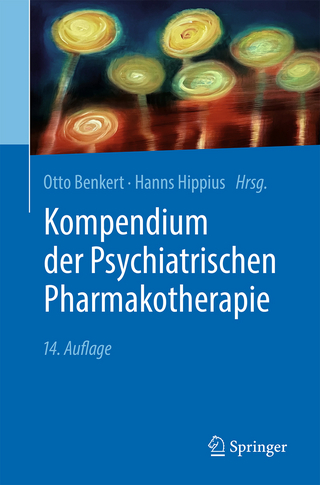
Modern Methods of Drug Discovery
Springer Basel (Verlag)
978-3-7643-6081-8 (ISBN)
1 Modern methods of drug discovery: An introduction.- 2 Proteomics.- 3 Bioinformatics.- 4 High-throughput screening technologies.- 5 Natural products for lead identification: Nature is a valuable resource for providing tools.- 6 Combinatorial chemistry: Mixture-based combinatorial libraries of acyclic and heterocyclic compounds from amino acids and short peptides.- 7 Computational approaches towards the quantification of molecular diversity and design of compound libraries.- 8 The role of protein 3D-structures in the drug discovery process.- 9 NMR-based screening methods for lead discovery.- 10 Structure-based design of combinatorial libraries.- 11 3D QSAR in modern drug design.- 12 Physicochemical concepts in drug design.- 13 Computer-aided prediction of drug toxicity and metabolism.
| Erscheint lt. Verlag | 11.12.2002 |
|---|---|
| Reihe/Serie | Experientia Supplementum |
| Zusatzinfo | IX, 292 p. |
| Verlagsort | Basel |
| Sprache | englisch |
| Maße | 155 x 235 mm |
| Gewicht | 800 g |
| Themenwelt | Medizin / Pharmazie ► Medizinische Fachgebiete ► Pharmakologie / Pharmakotherapie |
| Medizin / Pharmazie ► Pharmazie | |
| Schlagworte | Arzneimittel • biochemical engineering • biochemistry • Bioinformatics • Biology • Chemistry • combinatorial chemistry • Drug • drug design • drug development • drug discovery • genomics • high throughput screening • Metabolism • Molecular Biology • Pharmaceutical • pharmacology • Protein • Proteomics • Research |
| ISBN-10 | 3-7643-6081-X / 376436081X |
| ISBN-13 | 978-3-7643-6081-8 / 9783764360818 |
| Zustand | Neuware |
| Haben Sie eine Frage zum Produkt? |
aus dem Bereich


